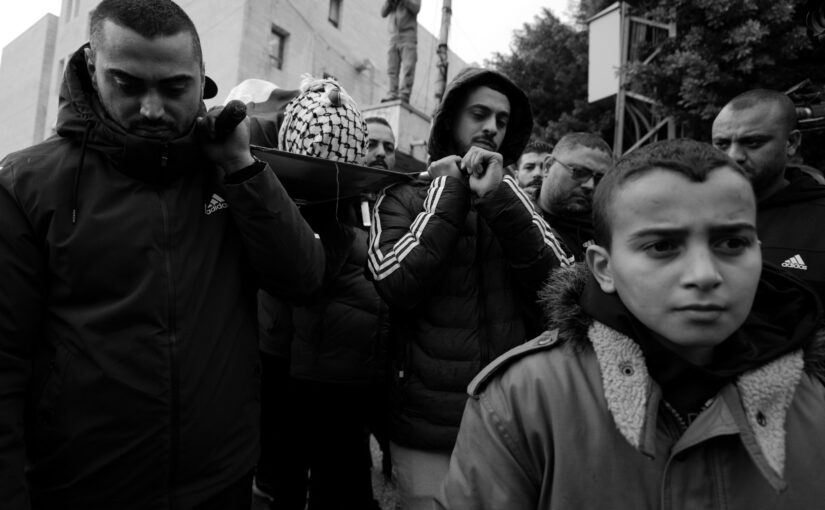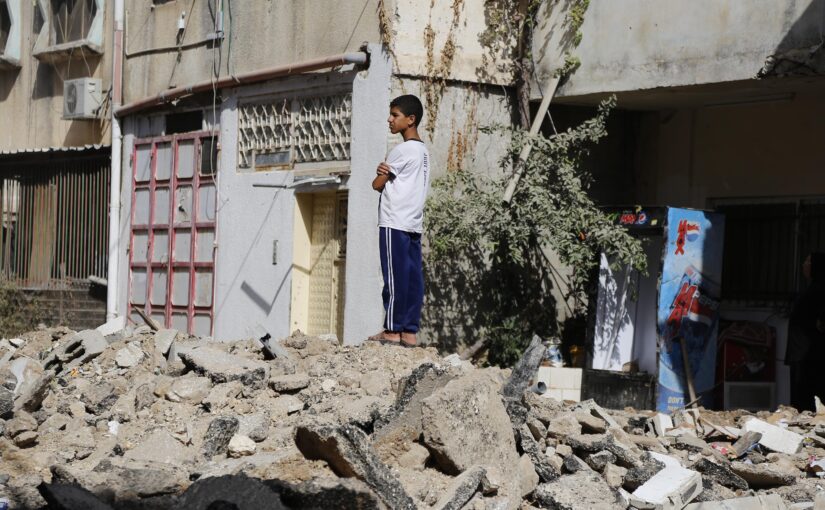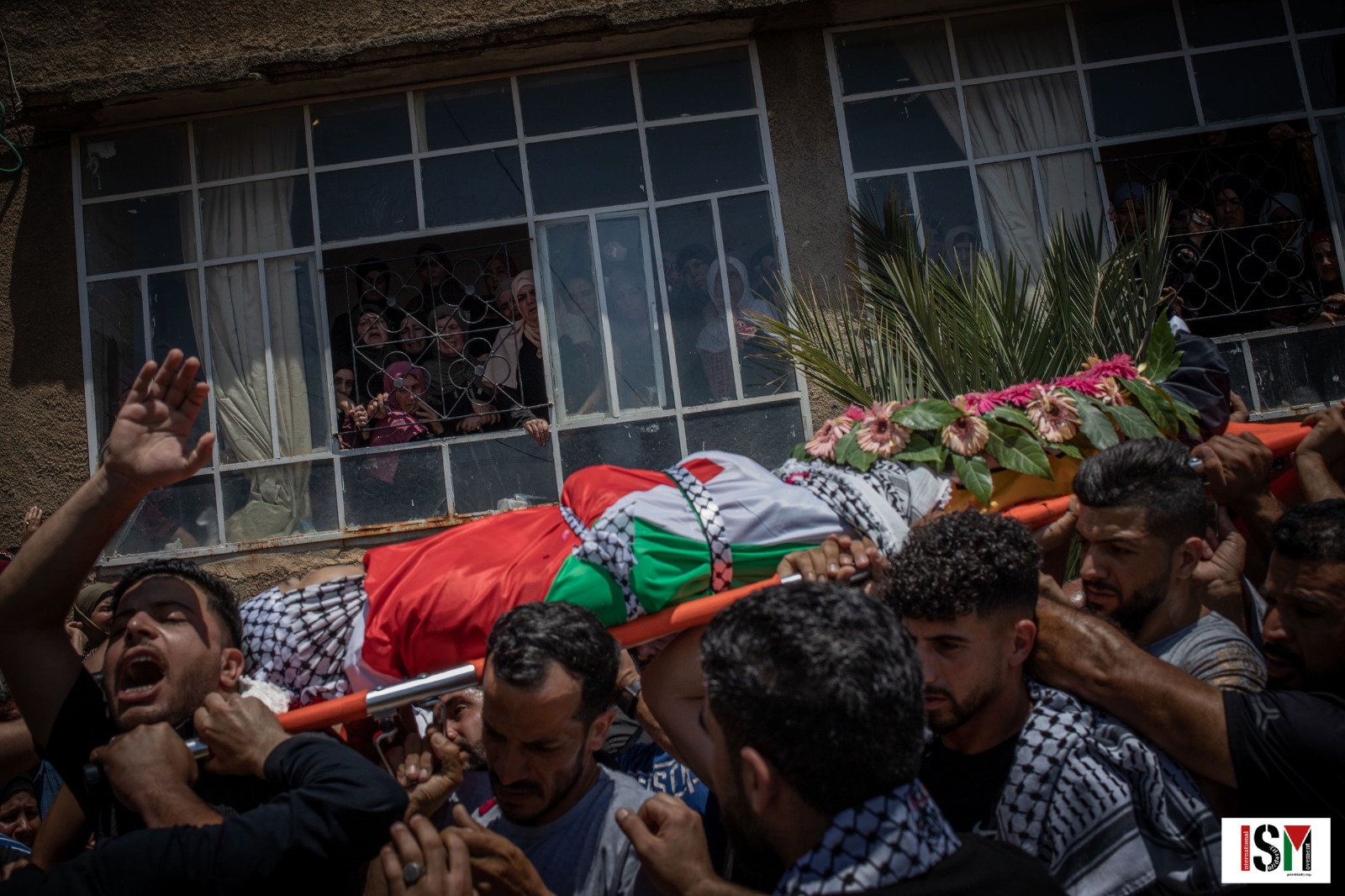Category: Features
-
The Crime Scene Repeats
By Diana Khwaelid | December 19, 2024 Six Palestinians were killed in Israeli operations in Tulkarem and Balata camps in less than three hours on the morning of Thursday 19 December. Four Palestinian youths were killed by Israeli forces in Tulkarem camp, in the latest of a string of outrages there. At noon on Thursday…
-
Israeli plan to displace residents of Palestinian camps
Palestine – Northern West Bank 18-Sep-2024 By Diana Kwaelid For the past two weeks, the Israeli army has been conducting the largest military operation in the northern West Bank, causing the displacement of dozens of families from the Jenin Camp, Nur Shams Camp, and Tulkarem camp. This comes following Israeli calls to evacuate the camps,…
-
16-year-old boy killed during Friday demonstration
Amjad Nashat Abu Alya, 16, was killed by Israelis on Friday 29 during a demonstration in the village of al-Mughayyer. Amjad died in a hospital in Ramallah after being shot in the chest. Eyewitnesses said he was running to safety after throwing stones when a settler shot him in the back. He is the 7…



